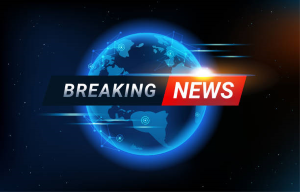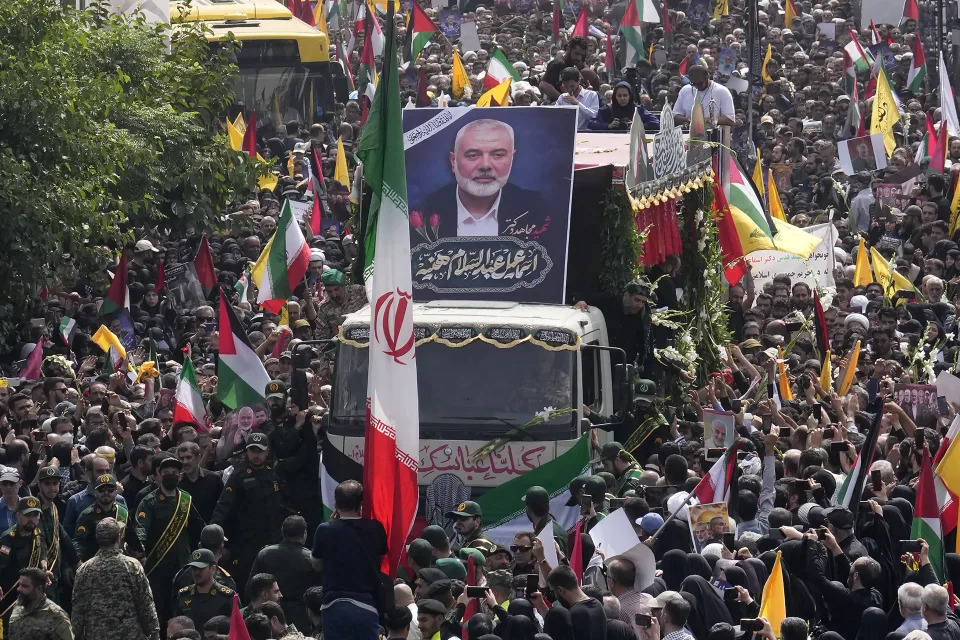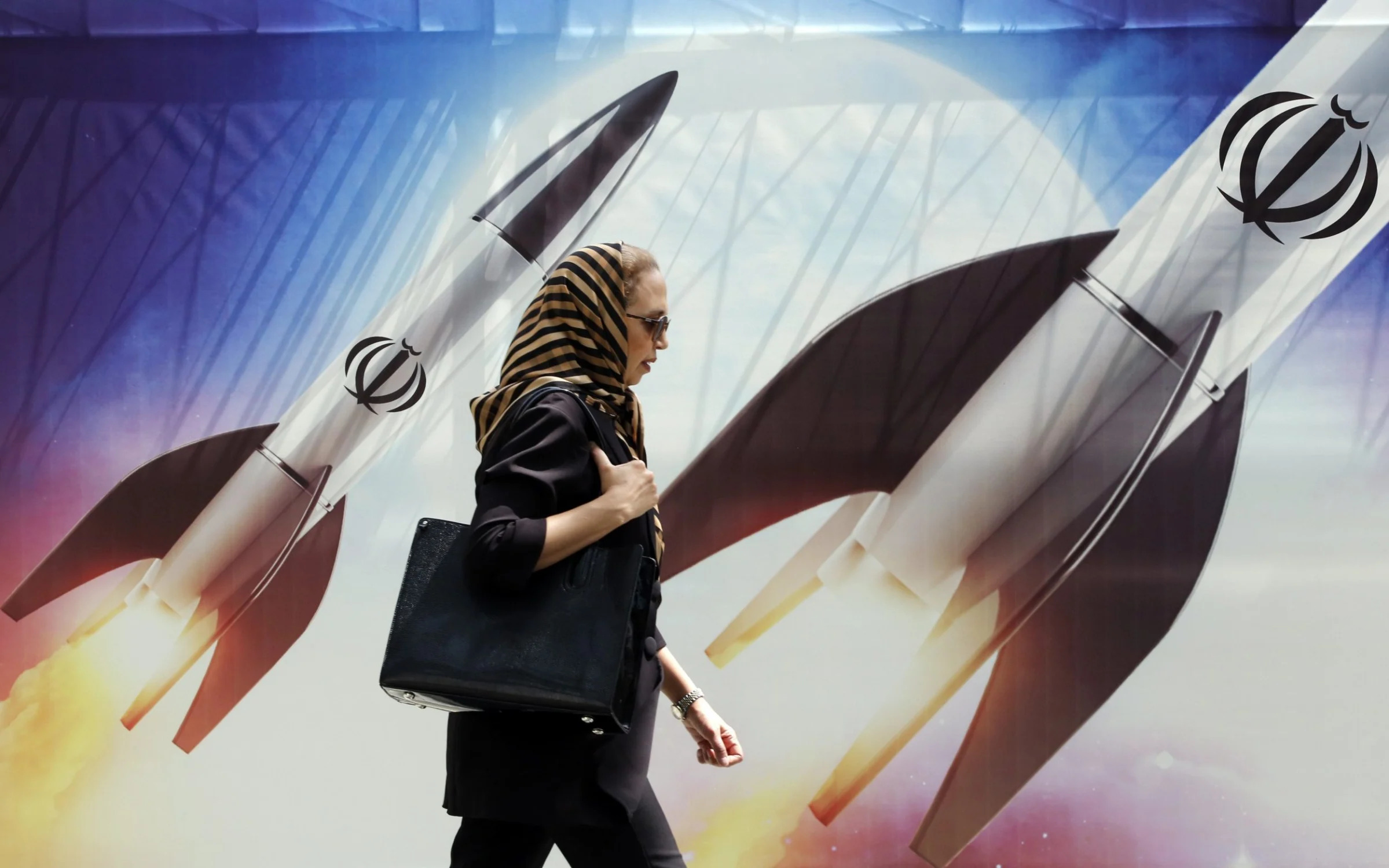Iran's threatened retaliatory strike on Israel over the assassination of Hamas official Ismail Haniyeh drew major world powers into a high-wire act of diplomacy Tuesday.
Halting or limiting an Iranian strike in some eyes could bolster a monthslong effort to reach a cease-fire in a war that's devastated the Gaza Strip and killed nearly 40,000 Palestinians, according to the territory's health ministry. It could also free the Israeli hostages who remain captive there since Hamas' Oct. 7 attack on southern Israel that killed 1,200 people and began the conflict.
Failure to do so could see Iran launch a complex drone-and-missile attack in tandem with Lebanon's Hezbollah militia, now separately aggrieved over Israel's killing of one of its top commanders, straining the ability of Israel's missile defenses and its allies to defend against the assault. Widespread losses could push Israeli Prime Minister Benjamin Netanyahu's hard-line government into its own direct attack on Iran — and drag the wider Middle East into a regional war.
That fear has prompted a flurry of diplomacy in the region. France, Germany, and the United Kingdom on Monday urged Iran and its allies to “refrain from attacks that would further escalate regional tensions and jeopardize the opportunity to agree (to) a cease-fire and the release of hostages."
In a call, British Prime Minister Keir Starmer warned Iran's new reformist President Masoud Pezeshkian that there was “a serious risk of miscalculation and now was the time for calm and careful consideration.”
Pezeshkian rebuffed the message.
"A punitive response to an aggressor is a right of nations and a solution for stopping crimes and aggression,” Pezeshkian said.
The new Iranian president also has been called by Cardinal Pietro Parolin, the Vatican's secretary of state, and German Chancellor Olaf Scholz over the retaliation threat.
Pezeshkian has acknowledged he will follow the orders of Iranian Supreme Leader Ayatollah Ali Khamenei, who already said Israel “paved the way for a severe punishment upon itself with this action.”
Iran has been repeatedly targeted by suspected Israeli assassinations and sabotage campaigns, increasing the pressure on its theocracy to act to maintain its leadership position in its self-declared “Axis of Resistance” with militias it arms in the region. But it also has faced years of widespread protests, economic woes and other domestic challenges embrittling the public's support of the government. Its first complex attack on Israel in April caused little damage, raising the risk of it needing to go larger this time in response.
The United States, Israel's main backer, has called repeatedly on Iran not to retaliate. It also has backed efforts mediated by Egypt and Qatar to reach a cease-fire in the wider war. However, it's also prepared militarily in the Mideast in case things do escalate.
The U.S. military has instructed the USS Abraham Lincoln aircraft carrier strike group to sail more quickly to the area. America also has ordered the USS Georgia guided missile submarine into the Mideast, while the USS Theodore Roosevelt aircraft carrier strike group has been in the Gulf of Oman. Additional F-22 fighter jets have flown into the region, while the USS Wasp, a large amphibious assault ship carrying F-35 fighter jets, is in the Mediterranean Sea.
It's not just Western powers that have been involved in recent weeks. Russian officials under President Vladimir Putin have engaged in discussions with Iran. The secretary of Russia’s national security council, Sergei Shoigu, visited Tehran and described the assassination of Haniyeh as “tragic" and something that was “impossible to bypass” in talks with Iran's government.
Russian Deputy Foreign Minister Mikhail Bogdanov separately said Moscow was “calling on everybody to refrain from escalating the situation from turning into a disaster for all regional players,” according to the state-run Tass news agency.
“Political ways out of the existing problems must be found,” it quoted Bogdanov as saying.
For Iran, Russia remains one of the few international suppliers of advanced weaponry willing to do business with it even as its nuclear program enriches uranium at nearly weapons-grade levels. Iran for years has asked for Sukhoi Su-35 fighter jets. Tehran has also sought Russia's S-400 surface-to-air missile defense system, a possible deterrent for the American-made F-35 fighter jets flown by the U.S. and Israel.
It's not just Iran, though, that needs weapons. Putin has relied increasingly on Iranian-made bomb-carrying drones in his war on Ukraine, which has escalated in recent days with Kyiv marching into Russia's Kursk region as a means to pressure Moscow as it makes gains in eastern Ukraine’s Donbas region.
Putin also hosted Palestinian Authority President Mahmoud Abbas on Tuesday in Moscow.
Then there's China, which has tried quietly to assert more influence in the Mideast without devoting the same amount of military power as the United States. China last year mediated a deal between Iran and Saudi Arabia that saw the countries reach a détente, though Riyadh continues to eye Tehran warily.
In July, China also hosted the signing of a deal between Hamas and Fatah, the main force in the U.S.-backed Palestinian Authority that administers parts of the occupied West Bank. While the agreement calls for the factions to form a joint government, previous deals fell apart between the rivals, calling into question whether this one would be any different.
China also has begun criticizing Israel more directly amid the war, rather than following its typical pattern of calling for restraint on all sides.
Responding to questions from The Associated Press, China's Foreign Ministry on Wednesday said Beijing had “on many occasions appealed to the international community for an early end of the Gaza conflicts and prevention of the continuous expansion of the spillover effect, and has been playing a positive role in easing the regional tense situation.”
“China supports all efforts that are conducive to achieving permanent all-round cease-fire in Gaza and is willing, together with the international community, to promote the cooling down of the regional situation, so as to avoid the further escalation of the conflicts,” the ministry said.
AfriPrime App link: FREE to download...
https://www.amazon.com/Africircle-AfriPrime/dp/B0D2M3F2JT
Call Gaza ceasefire and we will not attack you, Iranian officials reportedly tell Israel
Iran will not launch an attack on Israel if there is a ceasefire deal in Gaza, officials in Tehran said on Tuesday.
It is the first time Iran has linked its threatened retaliation against Israel to the Gaza peace and hostage negotiations.
Israel has been braced for a twin attack from Iran and its proxy Hezbollah in Lebanon for two weeks after the assassinations of Ismail Haniyeh, the Hamas political leader, in Tehran and a Hezbollah commander in Beirut.
Iran is said to fear an attack on its nuclear facilities should a regional war break out, while Israel is reportedly plotting strikes on the country’s water and oil infrastructure to shatter its economy and bring down its hard-line Islamic regime.
For two weeks, the US has sought to avert an escalation by rushing massive military capability into the region while pursuing a peace deal.
Its strategy hinges on a new round of ceasefire talks scheduled to take place in Doha, the Qatari capital, on Thursday.
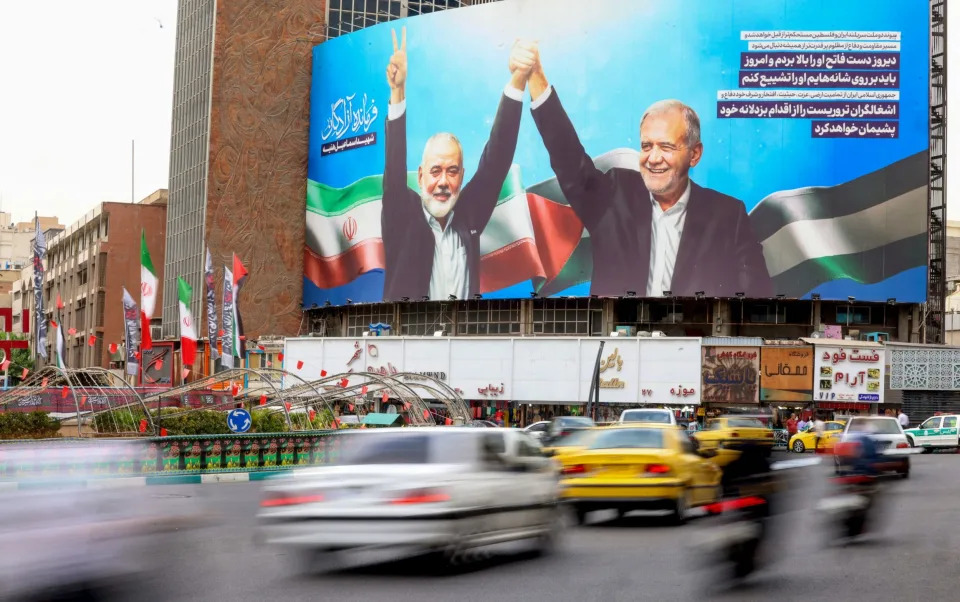
On Tuesday night, Joe Biden said it was his “expectation” that Iran would hold off on a retaliatory strike if a ceasefire agreement is reached.
Three “senior Iranian officials” quoted by Reuters have now linked the country’s planned military response to the Doha talks.
Iran was even considering sending a representative to the talks as an observer to “maintain a line of diplomatic communication” with the US while negotiations proceeded, one of the unnamed officials said.
“Iran, along with allies such as Hezbollah, would launch a direct attack [on Israel] if the Gaza talks fail or it perceives Israel is dragging out negotiations,” Reuters reported one of the sources as saying. “The sources did not say how long Iran would allow for talks to progress before responding.”
Iran does not directly control Hezbollah but has significant influence over both it and Hamas as the principal funder of both terrorist groups.
Reuters quoted a source close to Hezbollah who said Iran would give the negotiations in Doha a chance but would not give up entirely on its intention to strike Israel.
A ceasefire in Gaza would give Iran cover for a smaller, “symbolic” response, one of the sources said.
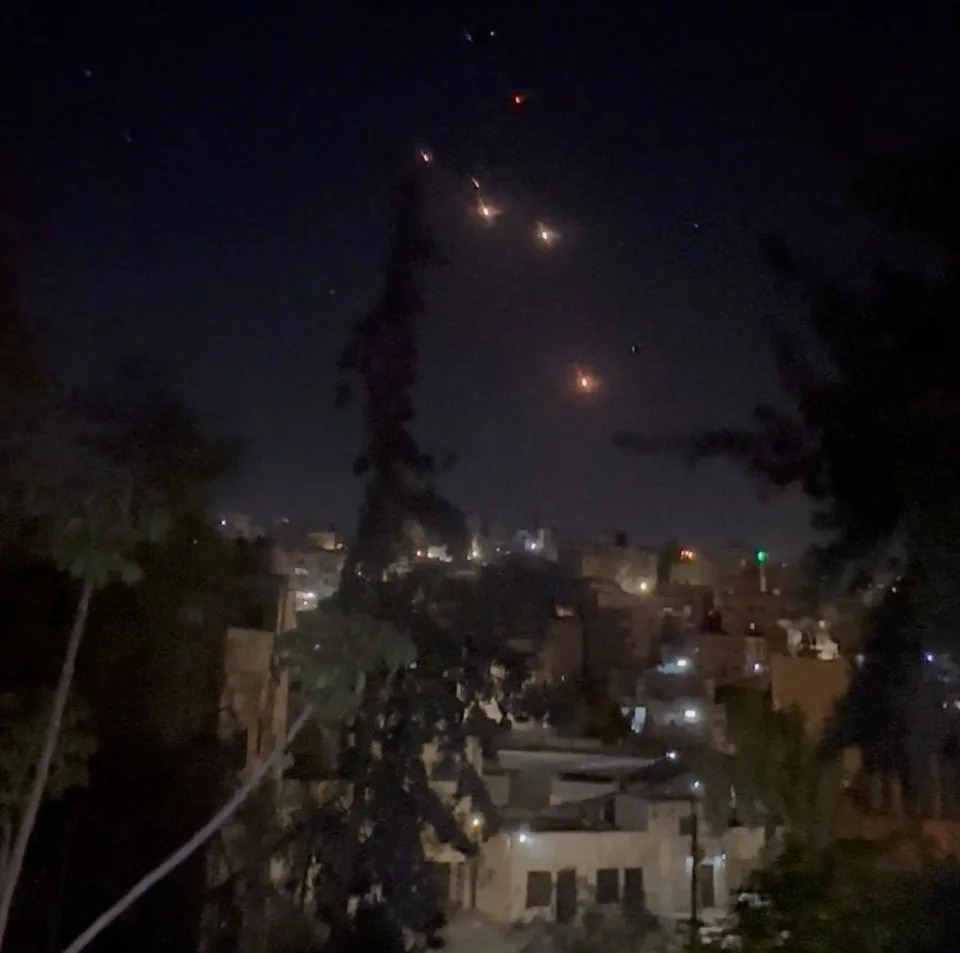
The US-led diplomatic effort to avert war remains intense, with Antony Blinken, the secretary of state, expected to arrive in the region on Tuesday night.
Sir Keir Starmer, the Prime Minister, and Olaf Sholtz, the German chancellor, spoke to Masoud Pezeshkian, Iran’s president, on Monday, expressing their concern about a regional war if Iran followed through on its threats to attack Israel directly.
The US, Britain, France, Italy and Germany urged Tehran to stand down in a joint letter.
However, Iran continued to insist on its right to respond to an attack on its soil.
Nasser Kanaani, the spokesman for the Iranian ministry of foreign affairs, said: “The declaration by France, Germany and Britain, which raised no objection to crimes of the Zionist regime, brazenly asks Iran to take no deterrent action against a regime which has violated its sovereignty.”
Instead of issuing such demands, Western nations should “once and for all stand up against the war in Gaza and the warmongering of Israel”, Mr Kanaani added.
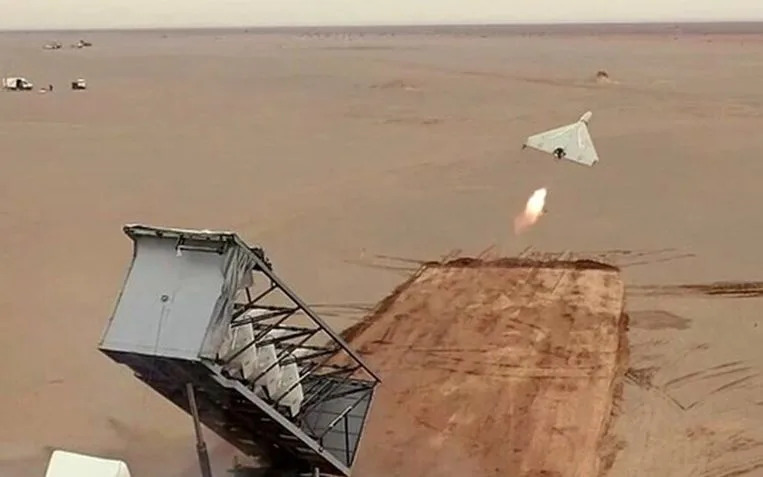
Iran would “never give in to pressure, to sanctions and to bullying and considers it has the right to respond”.
Israel’s Army Radio reported that Israel had conveyed messages to its allies warning that it would strike Iran if it launched an attack.
“We take the declarations and statements of our enemies seriously. Therefore, we are prepared at peak readiness in offence and defence,” said Rear Admiral Daniel Hagari, an IDF spokesman.
On Tuesday, it was reported that Mr Blinken would visit Israel, Egypt and Qatar in a last-ditch attempt to secure a ceasefire deal between Israel and Hamas.
Hamas had been holding out on attending the talks but on Tuesday the US said that may change.
“Qatar has assured us that they will work to have Hamas represented,” said Vedant Patel, a state department spokesman.
AfriPrime App link: FREE to download...
https://www.amazon.com/Africircle-AfriPrime/dp/B0D2M3F2JT
White House Says Iran Could Attack Israel ‘This Week’ in Retaliation for Hamas Assassination
Fears are mounting over prospects of a significant escalation of the war in Gaza, with the White House warning Tehran could attack Israel in a matter of days.
For now, it’s not entirely clear what kind of assault Iran might be looking to mount in retaliation for the bombing that killed Hamas political leader Ismail Haniyeh at a guest house in the Iranian capital two weeks ago.
But John Kirby, White House national security spokesman, said the Biden administration shared Israel’s concerns on the timing of any Iranian action. “Could be this week,” Kirby told reporters on Monday. “We have to be prepared for what could be a significant set of attacks.”
Kirby added that the U.S. had greatly increased its “force posture and capabilities in the region” over the past few days. This has seen the deployment of further fighter jets, naval warships and even a nuclear-powered submarine to the Middle East, as Iranian commanders prepare to carry out Ayatollah Ali Khamenei’s orders to “harshly punish” Israel for Haniyeh’s assassination.
It wouldn’t mark the first time Iran has directly attacked Israel since Hamas swept into Israel, killing more than 1,100 people, on Oct. 7. In April, this year after Israeli forces had bombed the Iranian embassy in Damascus, Iran responded by firing several hundred rockets toward Israeli territory.
Though the bombardment appeared to have drawn the crisis in the Middle East to a razor’s edge, most of the missiles were intercepted, with those that made it through resulting in only a small number of injuries and minor damage to a handful of air bases. The attack was therefore largely seen as a show of force, with Iran telling the U.N. that matters could be “deemed concluded” in its aftermath.
This time, however, is different. While Israel has not claimed responsibility for Haniyeh’s assassination in the Iranian capital, the Netanyahu government hasn’t denied it either. Officials had previously vowed to kill Haniyeh and other senior Hamas leaders, and the killing came just hours after Israel successfully targeted a top Hezbollah commander in Beirut.
Conflicting reports have emerged over how Haniyeh’s execution was carried out—some suggested it may have been an airstrike, others that a remotely detonated bomb had been placed under the leader’s bed at the guest house in Tehran months in advance.
Whatever the exact method, the property was under the management of the Islamic Revolutionary Guard Corps. His assassination was therefore widely seen as a deeply humiliating security failure on the part of Iranian intelligence, with an investigation having since seen more than 20 individuals arrested, including senior officials and staff from the guest house.
Israel’s other Western partners are now engaged in a frantic scramble to keep ceasefire negotiations on the table, with France, Germany and the U.K. issuing a joint statement yesterday calling for the fighting to “end now,” urging the return of Israeli hostages still held by Hamas and the “unfettered delivery and distribution of aid” in Gaza.
AfriPrime App link: FREE to download...
https://www.amazon.com/Africircle-AfriPrime/dp/B0D2M3F2JT
Iran rejects Western calls to stand down Israel threat
Iran on Tuesday rejected Western calls to stand down its threat to retaliate against Israel for the killing of Hamas political leader Ismail Haniyeh in Tehran late last month.
The Islamic republic and its allies have blamed Israel for Haniyeh's killing on July 31 during a visit to the Iranian capital for the swearing-in of President Masoud Pezeshkian. Israel has not commented.
Iran has vowed to avenge the death, which came hours after an Israeli strike in Beirut killed a senior commander of Hezbollah, the powerful Iran-backed militant group in Lebanon.
Western diplomats have scrambled to avert a major conflagration in the Middle East, where tensions were already high due to the Israel-Hamas war in Gaza.
In a statement on Monday, the United States and its European allies urged Iran to de-escalate.
"We called on Iran to stand down its ongoing threats of a military attack against Israel and discussed the serious consequences for regional security should such an attack take place," said the joint statement from Britain, France, Germany, Italy and the United States.
The White House warned that a "significant set of attacks" by Iran and its allies was possible as soon as this week, saying Israel shared the same assessment.
The United States has deployed an aircraft carrier strike group and a guided missile submarine to the region in support of Israel.
Iran's foreign ministry spokesman Nasser Kanani criticised the Western call for it to de-escalate.
"The declaration by France, Germany and Britain, which raised no objection to the international crimes of the Zionist regime, brazenly asks Iran to take no deterrent action against a regime which has violated its sovereignty and territorial integrity," he said in a statement.
"Such a request lacks political logic, flies in the face of the principles and rules of international law, and constitutes public and practical support" for Israel.
- Call for 'unfettered' aid -
The United States and its European allies also called for a ceasefire between Israel and Hamas in Gaza, with difficult talks set for Thursday on halting the conflict.
They also called for the "unfettered" delivery of aid to devastated Gaza.
The Gaza war began with Hamas's October 7 attack on southern Israel which resulted in the deaths of 1,198 people, mostly civilians, according to an AFP tally based on Israeli official figures.
Militants also seized 251 people, 111 of whom are still held captive in Gaza, including 39 the military says are dead.
Israel's retaliatory military offensive in Gaza has killed at least 39,897 people, according to a toll from the territory's health ministry, which does not provide a breakdown of civilian and militant deaths.
International mediators have invited Israel and Hamas to resume negotiations this week on a ceasefire and hostage release deal, an invitation Israel has accepted.
Hamas has urged mediators to implement a truce plan earlier presented by US President Joe Biden instead of holding more talks.
Analyst Esfandyar Batmanghelidj said Iran was considering how to retaliate against Israel without derailing the ceasefire talks.
"The renewed push for a ceasefire offers Iran a way out of this escalatory cycle," Batmanghelidj, CEO of the Bourse & Bazaar Foundation think-tank, told AFP.
"Iranian officials still feel obliged to hit back at Israel, but they must do so in a way that doesn't derail the prospects for a ceasefire summit."
- West Bank violence -
Pressure for a ceasefire in Gaza has grown since civil defence rescuers in the Hamas-run territory said an Israeli air strike on Saturday killed 93 people at a school housing displaced Palestinians.
Israel said it targeted militants operating out of the school and mosque.
In the latest Gaza violence, Palestinian fighters clashed overnight with the Israeli army near Netzarim, south of Gaza City, an AFP correspondent reported.
Paramedics said one person was killed and others were wounded in Israeli bombing of the Al-Maghazi refugee camp in central Gaza. They were taken to Al-Aqsa Martyrs Hospital in the city of Deir el-Balah.
In the occupied West Bank, the Palestinian health ministry said Israeli forces shot dead a Palestinian man near the town of Azzun, east of Qalqilya, on Monday.
The Ramallah-based health ministry identified him as Tariq Ziad Abdul Rahim Daoud. The Israeli army said the alleged attacker had fired at an Israeli civilian in Qalqilya.
Hamas later issued a statement mourning the death of Tariq Daoud, saying he was a member of its armed wing.
A Palestinian prisoners watchdog said on Tuesday that the 18-year-old had been released on November 25 during a one-week truce that saw scores of Palestinians freed from Israeli jails in exchange for Israeli hostages held in Gaza since October 7.
AfriPrime App link: FREE to download...


